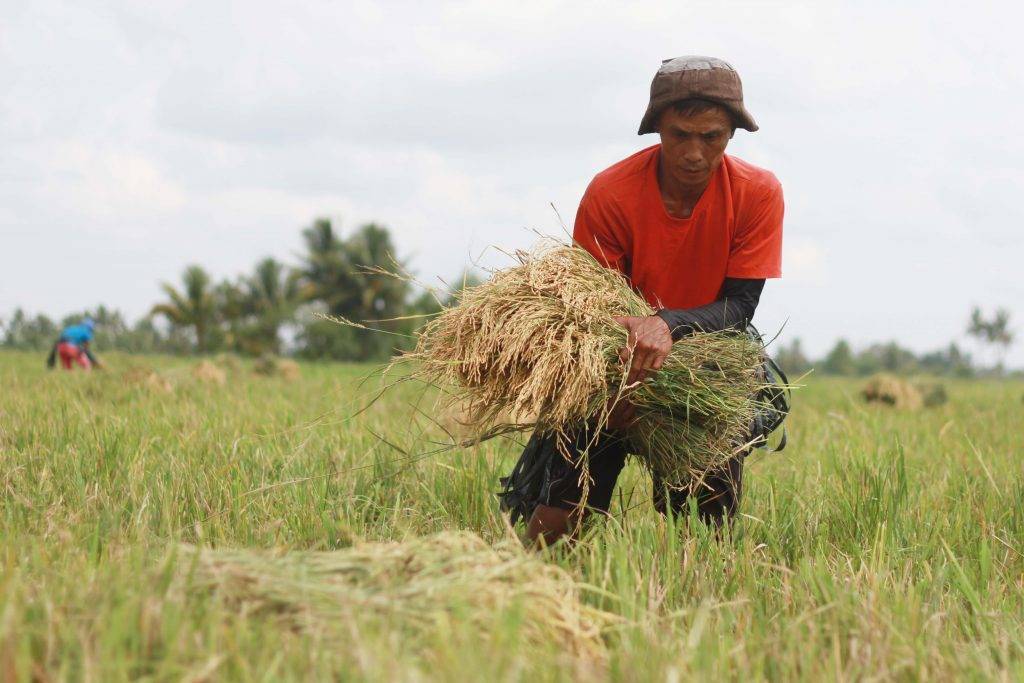PBBM on food security emergency: We have to force the price of rice down
At A Glance
- A food security emergency will enable the National Food Authority (NFA) to sell rice stocks to local government units (LGUs) and other government agencies at a lower price.
President Marcos said yesterday that the impending declaration of a food security emergency in the country by the end of the month would be a last resort to bring the price of retail rice down despite government efforts to alleviate the situation.

Marcos said this after the Department of Agriculture (DA) announced that it would declare a food security emergency by the end of January to address the spiking retail price of rice despite the declining global rice costs and tariff reductions.
In an interview in Burauen, Leyte, on Friday morning, Jan. 17, the President explained why the government opted to declare a food security emergency.
“Ginawa na natin ang lahat upang ibaba ang presyo ng bigas (We did everything to bring the price of rice down), but the market is not being allowed to work properly,” he lamented.
“Hanggang ngayon, kahit ibaba mo ang lahat ng input, ang pagbenta pa rin, mataas pa rin (Until now, even if you bring down all inputs, the selling price is still high). So, we have forced that price down and we have to make sure that the market works properly,” he added.
DA Secretary Francisco Tiu Laurel said this week that a food security emergency will enable the National Food Authority (NFA) to sell rice stocks to local government units (LGUs) and other government agencies at a lower price. It will also free up space in NFA warehouses and help local farmers through palay procurement for the upcoming harvest season.
NFA rice may also be sold to the Philippine National Police (PNP), Armed Forces of the Philippines (AFP), and other government agencies and government-owned and controlled corporations (GOCC).
The NFA currently holds 300,000 metric tons of rice in buffer stocks.
According to the NPCC, releasing these reserves would help decongest warehouses in preparation for the upcoming February harvest.
As a result, the NFA would replace the disbursed stocks with locally-produced rice.
NPCC Resolution
The NPCC approved a resolution on Thursday, Jan. 16, urging the DA to declare a “food security emergency” for rice as prices for the commodity remain high.
Department of Trade and Industry (DTI) Secretary Ma. Cristina Roque, chairperson of the NPCC, said this move is crucial given that rice prices continue to soar amid declining global rice costs and tariff reductions ordered by President Marcos.
The declaration would allow the NFA to release buffer stock rice to stabilize local prices.
Under this, Roque said the NFA will be allowed to sell rice through Kadiwa centers, local government units (LGI), and other government agencies.
"This declaration empowers the DTI to take decisive action in protecting consumer welfare while strengthening our nation's agricultural backbone,” said Roque in a statement.
“By prioritizing the produce of hardworking Filipino farmers, we are fostering a resilient and self-reliant Bagong Pilipinas (New Philippines)—one that ensures stability, sustainability, and shared prosperity for both consumers and the agricultural sector," added Roque.
Under the Rice Tariffication Law enacted in 2019, NFA’s role has been curtailed to only procuring palay (unhusked rice) from local farmers and maintaining buffer stocks. The law removed the agency’s prior authority to regulate rice trading and sell directly to the public.
As such, declaring a food security emergency would temporarily expand its capabilities.
Laurel approved the NPCC’s resolution. He explained that this is a “critical move” in addressing rice affordability.
Laurel said he has yet to discuss the matter with the President, noting that he is still waiting to receive the full resolution.
The decision to declare an emergency stems from the unyielding high prices of rice, which have not responded as expected to government interventions such as tariff reductions.
Tiu-Laurel expressed concerns about potential profiteering within the rice market, indicating that some sellers may be taking advantage of the situation to inflate prices.
Notwithstanding, if the DA approves the declaration before the end of January, he said this would help lower rice prices by the first week of February.
“It’s additional supply to the market. To the laws of supply and demand, it’s only logical na bababa ng kaunti ang bigas (that rice prices will decrease a bit),” added Laurel.
The DA chief pointed out that affordable rice prices possess broader economic benefits for the country, given its impact on inflation and interest rate policies.
“Even if you don’t eat rice, lower rice prices help stabilize our economy,” he said.
Based on government data, rice accounts for nearly 10 percent of Filipino household budgets. For poorer families, this is doubled to 20 percent.
The declaration of a food security emergency is anticipated to bring some relief to consumers, with potential price reductions of P3 to P5. However, the government is not solely relying on this measure and is actively exploring other avenues to address the crisis.
These include expanding the capacity of NFA warehouses and implementing revised labeling requirements to ensure consumers are well-informed and protected from deceptive practices.
The DA and the DTI are collaborating closely to monitor and enforce measures aimed at controlling rice prices. The government is also considering a hybrid approach to tariff rates, potentially increasing them for specific types of rice to further manage the situation.